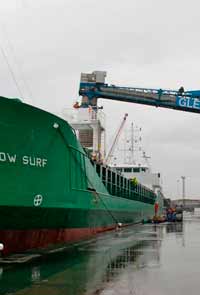Trade reform must go all the way

The current Doha round of WTO negotiations is unlikely to go far enough in freeing-up international trade and further relaxation of trade barriers will be needed to create a global “level playing field”.
That was the main message from one of several international speakers at this year’s National Farm Management Conference in Oxford.
“The Doha Round will not complete the critical reforms needed to improve the functioning of global agricultural markets,” said Peter Kell from the New Zealand High Commission in London. “New Zealand’s top priority remains the conclusion of the Doha Round, but we are deeply concerned that political will seems lacking on the part of some major players. We will want to see further negotiations in the WTO take these reforms further.”
He welcomed European and UK efforts to reform the CAP, and urged policymakers to push ahead with measures to free-up trade, and not let the complexities of agricultural policy stall the process.
Mr Kell said any CAP policy changes should avoid “unintended consequences”. In the dairy sector for example, he said border measures such as import tariffs and export subsidies should be reduced at the same time as milk quotas were removed, otherwise there was a danger the sector could “expand significantly in response to price signals which could be well above international levels”.
The Brazilian Embassy‘s Paulo Wrobel said the removal of trade barriers was crucial to help developing countries expand their production. “Brazil has about 394m ha of available arable land, but is only planting 16% of that total. We’ve seen the issues of higher food prices and global food security increase over the past two years, and lowering barriers to trade could bring tremendous benefits all over the world,” he said.
Meanwhile, USDA agricultural specialist Steve Knight said that one of the biggest trade issues from the US’s perspective was the EU’s lack of sound science-based policy on biotechnology. “A lot of policies seem to be based more on politics rather than science, which seems to result in a real mismatch, and creates trade problems and friction.”
Speakers highlighted the increasing population and wealth of Chinese and Asian markets as key drivers of future trade. “However, this also brings new supply chain challenges,” Mr Kell said. “A lot of these markets are different to our traditional ones and involve customer requirements we don’t yet fully understand.”
